How to achieve success with integrity
By Claudia Bergamasco
Small & Big Business - Issue 186 - Jul / 04
Brazil is really a peculiar country. Since we met as people - and this is true for any of us - we have heard the same litany: that the business environment is hostile, that, in order to survive in the market, you cannot do everything as the costume requires. A lot of good people out there say that if they pay all their taxes, they will go bankrupt, that it is impossible to fulfill all labor obligations and that bureaucracy is an unbeatable virus.
So far, so good. Nobody, in their right mind, is able to claim that it is easy to run a business in Brazil. Everything seems to conspire against business development since the times of Barão de Mauá, in the reign of D. Pedro II, in the second half of the 19th century. The so-called Citizen Constitution of 1988 did not help either. Instead. He created a straitjacket for free enterprise capable of leaving many businessmen longing for former President Getulio Vargas, the main mentor of the State's participation in the economy and the labor protection network that is still in force in the country.
“Today, Brazil is heading towards veiled civil disobedience,” says Emerson Kapaz, former federal deputy (PPS-SP) and president of Etco Brazilian Institute of Ethical Competition, an entity that combats unfair competition, product counterfeiting and smuggling . "The tax burden we pay is five times greater than any company's profit margin," says businessman Robinson Shiba, owner of one of the country's largest franchise chains, China in Box, and president of the Ethics Committee of the Brazilian Franchising Association (ABF). "The State is not a good friend of companies" summarizes Clóvis Teske, owner of Herbarium, the largest national manufacturer of products based on herbs and medicinal herbs.
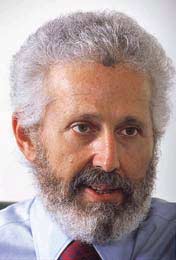 |
Oded Grajew President of the Ethos Institute for Business and Social Responsibility |
| "Every option entails some kind of loss. You need to consider what you think is important in life and pay the price. Having a good reputation, operating within the law and perpetuating your company is an option for everyone. It is up to you to choose which path you want to take ” |
Okay, Brazil is far from a paradise for business. In this regard, everyone agrees - and also in relation to the fact that, despite the unanimity existing on the subject, little is actually done to change the scenario. Now, from failing to deposit the guarantee fund or collecting the INSS from employees, as many businessmen who pose as heralds of morality in the media, goes a long way. The case of Wagner Canhedo, from Vasp, who is accused of not collecting more than 250 million reais from Social Security, is just one example that has come to the people's mouth. There are thousands of others.
The same can be said for those who increase the prices of their products in the dead of night, as some manufacturers of toilet paper, cookies and washing powder did at the beginning of the decade, by reducing the content offered to consumers without information on the packaging. What, then, about who pays intermediaries to buy their products from industry or retailers, rather than competitor products? What about the suppliers of goods and services to the government that deliver less than they should? Or the exporters and importers who overpriced or under-invoiced their sales or purchases to accumulate hard currency?
 |
Emerson Capaz President of Etco - Brazilian Institute of Competition Ethics |
“Even if it is just to put on the wall, the drafting of a code of conduct by companies is positive. But the example must always start from the top down ” |
Yeah, it's not a joke, no. Worst of all, instead of being repudiated in the public square, such entrepreneurs are still glorified by a significant portion of society. While national heroes abroad tend to serve as an example of the best that exists in society, here many people prefer to cultivate characters that symbolize the worst that we bring in our DNA. Perhaps the best example to illustrate what we mean is that of some politicians in the country, who, against all evidence of misappropriation of public money, are still highly rated in opinion polls. Do you need to say the names?
| Hostile environment |
The main factors that encourage a good number of entrepreneurs to go over the legislation or act in informality |
?HIGH TAX LOAD The weight of the taxes induces many people to evade, because it hinders the development of the companies already established and hastens the breaking of new businesses. Fees, contributions and taxes represent no less than 36,5% of the Gross Domestic Product (GDP) ?EXCESS BUREAUCRACY Everything needs a stamp, a signature, it takes too long to be implemented. The State places itself as an inhibiting agent for business, unlike what occurs in other countries VERY RIGID LABOR LAWS Regulatory complexity tends to plague companies. Labor charges represent an additional cost of 80% over gross workers' wages. Many companies end up not paying all labor rights in order to survive ?SLOWNESS OF JUSTICE The fact that the judicial system in Brazil is expensive and slow increases the cost of companies and favors swindlers. Not to mention that it alienates investors and ends up restricting the supply of jobs ?INFORMALITY As the so-called informal economy represents about 40% of the country's GDP, formal companies, which fulfill their legal obligations, have a disadvantage in the dispute for the consumer |
| Sources: Brazilian Institute of Tax Planning (IBPT), McKinsey and Institute of Applied Economic Research (Ipea) |
Even in the cultural area, we seem to idolize our worst traits. The character Macunaíma, “the hero without any character”, created by the writer Mário de Andrade (1893-1945) almost eighty years ago, is still considered, today, as a kind of synthesis of the yellow-green soul. The irresponsible portrait that we make of ourselves has become so ingrained in popular culture that even aliens have come to see us in the same way.
General Charles de Gaulle (1890-1970), former president of France, to whom the statement that “Brazil is not a serious country” is attributed, is a more than perfect example. As in the case of Macunaíma, there are still those who find in De Gaulle's sentence a justification for explaining all kinds of moral deviations from Brazilians.
"There is always an excuse to act unethically," says businessman Oded Grajew, president of the Ethos Institute for Business and Social Responsibility, an organization whose mission is to promote and disseminate socially responsible business practices. “We spent a lot of time working on the basis of the way,” says economist Maria Cecilia Coutinho de Arruda, coordinator of the Center for Ethics Studies in Organizations at Fundação Getulio Vargas in São Paulo. She analyzes this subject in one of the books she wrote, the “Fundamentals of Business and Economic Ethics” (Editora Atlas, 32 reais, 204 pages), launched in Brazil last year.
Despite having a background of truth, neither the anti-hero Macunaíma nor the maxim coined by the French general accurately reflects the Brazilian reality. And, in the specific case of the business world, it seems a great injustice to throw in the same bag those who use the famous “law of Gérson”, according to which the important thing is to take advantage of everything, and the legion of entrepreneurs who seek to be guided by business ethics. Against everything and against everyone, fortunately, there is still a group of entrepreneurs in the country who value a commodity that is priceless - integrity. And, contrary to what is said, there are many people, no. If 40% of the national wealth is the result of the so-called informal economy, according to a survey carried out by McKinsey, one of the main consulting companies in the world, it can be deduced, without risk of making mistakes, that the other 60% come from businesses that operate within the limits of legality. Are they losing money? Probably not. If that were the case, the informal economy would have an even greater weight than it already has in the country.
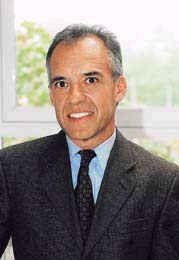 |
Celso Cruz McDonald's Quality and Purchasing Director |
“If we go on the pitch to play football, we have to play according to the rules of the game. It is the same with paying taxes. If you are a businessman, you have to follow the rules of the game ” |
Perhaps the usual gang says that operating within the law is a quixotic attitude in a banana republic like ours. But, for those who do not give up ethics in life and business, there is nothing more important than resting your head on the pillow every day and sleeping in peace with yourself. And being able to look directly at your family, without the fear of appearing on the police pages of newspapers at any time. “You can only win like that,” says Shiba, from China in Box. “If anyone says that you cannot win in business with integrity, you are saying that the whole capitalist system is unethical,” says Grajew, from Ethos.
Today, ethics has become a valuable item, extremely valuable, in the business world. According to Brazilian sociologist Robert Henry Srour, author of the book “Business Ethics” (Editora Campus, 79 reais, 416 pages), in the last quarter of this century, the issue has become an imperative in the universe of private companies. Currently, says Srour, acts deemed immoral or disreputable by the community have ceased to be covered up and tolerated, as was the case in almost the entire planet. Civil society began to put more effective pressure on companies. Customers are increasingly looking to ensure the quality of the products and services they purchase. As a result, suppliers, investors, government authorities, service providers and employees seek to understand the modus operandi of the companies with which they have business relationships, with the aim of protecting themselves against fraud by their partners and repudiating irresponsible actions.
The same is true for consumers. "Anyone who does not believe that the consumer is pursuing other values will not survive," says psychologist Telma Moretti, technical consultant at Instituto Ethos and Sebrae, an institution that supports micro and small companies. Telma says that today, the consumer, in general, chooses a product for price or quality. As prices and quality of products match, as is already happening in some cases, consumers should prefer the product or service of the company that cares about employees, cares about the community's destinations, treats customers well. suppliers, etc. “There are those who don't believe in any of this and, in a few years' time, will put their hands on their heads and say 'oh my, how come I didn't realize that?'
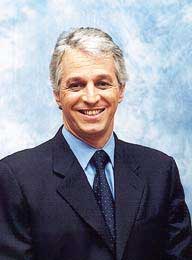 |
Pedro Luiz Passos President of Natura Cosméticos |
“We are evolving towards an economic and productive model that promotes the growth and perpetuation of the company through meeting the needs of the business itself, the human being and the communities” |
A survey carried out in March last year by the Akatu Institute, a non-governmental organization that preaches conscious consumption, reveals which are the values that consumers most appreciate in companies. According to the survey, which heard 1.000 people in nine capitals and in two metropolitan regions of the country (São Paulo, Rio de Janeiro, Porto Alegre, Curitiba, Belo Horizonte, Recife, Fortaleza, Salvador, Belém, Brasília and Goiânia), the most valued aspects are the defense of the environment, the recycling of materials, the contribution to social works and the support of campaigns to end child labor.
Even financial market investors are already beginning to invest their resources preferentially in the shares of companies that have a recognized ethical and socially responsible conduct. Several banks, such as Real / ABN Amro and HSBC launched funds composed exclusively of shares of companies that develop good environmental and social responsibility practices, which fall under the principles of good corporate governance. Created at the end of 2001, the ABN Amro fund, called Ethical, ended May with a net worth of R $ 35 million and HSBC's FAC Ação Social, launched at the same time, with R $ 26,8 million. real. Even to get a loan from the BNDES (National Bank for Economic and Social Development), industries today need to present a report on the environmental impact of the project. "It is a minimum commitment that the company must have with society", says the president of BNDES, Carlos Lessa.
- As can be seen, companies are increasingly required to behave blamelessly towards the various audiences with which they relate - banks, suppliers, employees, shareholders, customers, unions, government, community and even the environment. “A company will only survive in the medium and long term if it has management based on ethics and social responsibility”, says economist Paulo Castro, president of Instituto C&A, the social arm of the retail chain. "Companies are realizing that they always end up paying a much higher price than they imagine for cheating and lying."
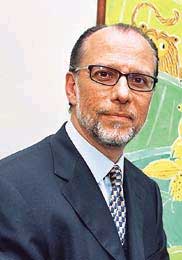 |
Helio Mattar President of the Akatu Institute |
"The lie has short legs. You can't throw everything that companies do wrong under the rug. Everyone will one day learn about fraud and illegal actions and whoever perpetrated them ” |
Several surveys carried out in Brazil and abroad show that society wants companies to carry out their business and achieve profit through correct and transparent processes that respect ethical principles and the community within which they are inserted. “It is as if, at every unfaithful act he commits, the businessman shoots himself in the foot, because it will be making his own country worse,” says professor Maria Cecilia, from FGV. "When you fail to comply with your fiscal and social obligations, you are encouraging barbarism, making Brazil a nobody's country," says Grajew.
Another study, carried out in May this year, by the Akatu Institute, in partnership with the Ethos Institute, in which 110 large and 321 small companies were heard across the country, concluded that large companies, such as Natura, O Boticário , McDonald's, Alcoa and BankBoston, among others, tend to respect ethical and moral principles more than small ones. From a total of 37 items evaluated (such as the adoption of purchasing criteria with guaranteed legal origin, anti-corruption practices, policies against prejudiced advertising, combating sexual harassment, establishing criteria for the use of information about customers, programs for rationalization and optimization of use of energy and incentive to volunteer work), 53% of small companies follow only eight items and only 5% follow 23 or more. In the case of large companies, the opposite happens - 43% follow 23 items or more and only 9% follow up to eight. "The path to be followed to disseminate ethical management practices is still long," says Artur Grynbaum, executive vice president of O Boticário, the largest cosmetics chain in the country. "The small business owner shirks responsibility on the grounds that he needs to survive, but he needs to see the business in the long run."
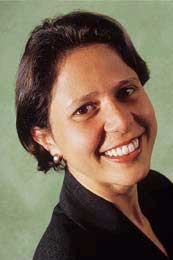 |
Marilia Rocca President of the Empreender Endeavor Institute |
“The company must focus on what it does best. If you want to take care of the environment, look for a partner. A company's goal is to generate sustainable jobs and pay taxes ” |
Even so, it cannot be said that business integrity is only for large companies and that small businesses cannot follow the recipe for good. In fact, that's not exactly how it works. "This is a myth," says psychologist Telma Moretti, from Instituto Ethos and Sebrae. "It is perfectly possible for small and even micro-enterprises to have an ethical and transparent attitude."
Telma speaks knowingly. She wrote the manuals “Self-Assessment and Planning Tool - Ethos-Sebrae Social Responsibility Indicators for Micro and Small Enterprises” and “Corporate Social Responsibility for Micro and Small Enterprises - Step by Step”, launched by the two entities for guidance of entrepreneurs. According to her, if her company is unable to bill enough to bear the tax burden, then it is simply not viable. "If the cost of taxes does not fit the product, that is, if the price has to be much higher than what the market accepts, then the company is not viable."
 |
Alcides Tapias Former Minister of Development, former president of Camargo Corrêa and former vice president of Bradesco is now a partner at Aggrego Consultores, in São Paulo |
“The country depends much more on examples than on projects. The government is all of us, the example must come from us ” |
The cases of small and medium-sized companies that have succeeded in operating with integrity are not as rare as one might think. Some examples: Shiba's China in Box; Teske's Herbarium; Brazoo, in the textile sector (see tables); Beijinho Doce, which produces and sells cakes, sweets and snacks; and Mundo Verde, a chain of natural products stores.
- Mundo Verde, which just won the award for The Best Franchise in Brazil 2004, granted by the magazine Pequenas Empresas & Grandes Negócios adopted ethics and social responsibility as inseparable values of its performance in the market (see report on page 36) . With 106 stores and gross sales of R $ 41,3 million last year, the chain cannot complain about the results it has achieved. It grew and consolidated without selling the soul to the devil. “We cannot expect the government to improve the economic and social conditions for companies to develop,” says engineer Elísio Joffe, founder of the chain. "We need to do our part."
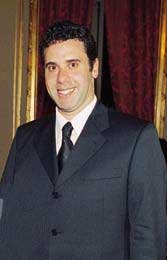 |
Arthur Grynbaum Executive Vice President of O Boticário |
“It is very likely that the company with an ethical management can make more profit, but that is something for the long term” |
By "our part", Joffe understands the payment of taxes, good relationships with employees, suppliers and franchisors and a social action that makes sense for the company. Last year, Joffe got to know the Social Institute Elza Pires, founded by the mother of actress Glória Pires, in 1999, in Petrópolis, which, according to him, has an “honest and transparent” performance. He started to support the project, which provides for the supply of natural food for 60 needy children, such as soy meat, theater classes, dance, music and crafts, as well as alternative health treatment, such as acupuncture and shiatsu massages. All in accordance with Mundo Verde's business philosophy. The money for maintaining the project, according to Joffe, comes from the advertising fee paid by franchisees. Part of it is reverted to the project. But there are already franchisees that go further - they contribute 0,5% of their sales to the institute.
The São Paulo Beijinho Doce, on the other hand, managed to stand out in the manufacture and direct sale to the consumer of cakes, sweets and snacks, an area in which small businesses predominate, many of them poorly structured and which, for this reason, is one of the most competitive sectors in the square. When economist Carlos Alberto Amaro bought the company in 1991, Beijinho Doce was just another company in the industry. Amaro says that he reformulated the entire structure of the company, starting with the business philosophy. “We are part of the group that preaches respect for the customer and the appreciation of suppliers and our employees,” he says. "For me, social responsibility starts at home."
Of its 29 employees, 12 (aged 17 to 20 years), come from the Instituto Criança Cidadã, an entity maintained by the Basic Sanitation Company of the State of São Paulo (Sabesp), the Companhia Energética de São Paulo (Cesp) and Transmissão Paulista. As a result of its social action, Beijinho Doce received, in 1998, the Empresa Amiga da Criança seal, granted by Fundação Abrinq. “We give preference to hiring needy young people,” says Amaro.
He says he personally takes care of guiding and training young people, many of them freshmen in the job market. In addition, before choosing suppliers, Amaro guarantees that he investigates whether the company follows a management philosophy similar to his, that is, registering employees, if it does not harm the environment, if it does not use child labor and if you don't have a dirty record in the Health Surveillance. "As we are a small company, we have difficulties in visiting our suppliers and knowing how their production processes are", he says. "But even so, we try to get as much information as possible before we buy from them." According to Amaro, Beijinho Doce did not succumb because of this. The monthly turnover ranges from 60.000 to 65.000 reais per month, more or less within the standard maintained by similar businesses. The production reaches about 1.000 kilos of cakes, 40.000 units of snacks, 20.000 sweets, in addition to snacks and fast dishes.
Good examples abound. They show that the excuses of those who prefer to go the other way are nothing more - excuses. The question is which side do you want to be on. It's your choice. The reputation too.



